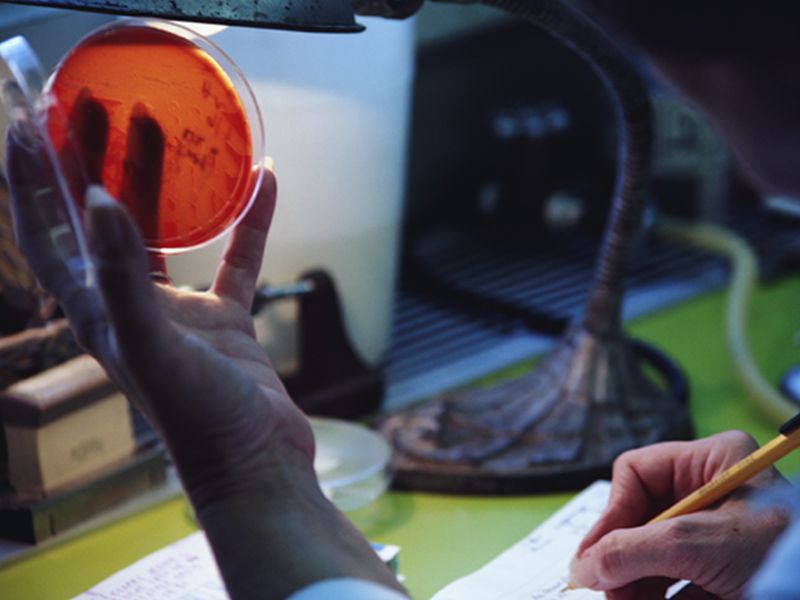-
Tips for becoming a good boxer - November 6, 2020
-
7 expert tips for making your hens night a memorable one - November 6, 2020
-
5 reasons to host your Christmas party on a cruise boat - November 6, 2020
-
What to do when you’re charged with a crime - November 6, 2020
-
Should you get one or multiple dogs? Here’s all you need to know - November 3, 2020
-
A Guide: How to Build Your Very Own Magic Mirror - February 14, 2019
-
Our Top Inspirational Baseball Stars - November 24, 2018
-
Five Tech Tools That Will Help You Turn Your Blog into a Business - November 24, 2018
-
How to Indulge on Vacation without Expanding Your Waist - November 9, 2018
-
5 Strategies for Businesses to Appeal to Today’s Increasingly Mobile-Crazed Customers - November 9, 2018
Global leaders move against antimicrobial resistance
At the United Nations Headquarters in NY on Wednesday, the 193 countries of the UN will sign a declaration to tackle the increasing threat of antimicrobial resistance.
Advertisement
The session ought to impress world leaders on the need for better stewardship of antibiotics in human health and for farm animals; improved diagnostics to help determine when people really need them and when they don’t; better surveillance of infectious diseases; and methods to stimulate the discovery and development of new antibiotics for all.
Countries need to come up with ways to monitor antibiotic use in both agriculture and medicine, begin curbing the use and develop new antibiotics that work.
The U.S. Public Interest Research Group (PIRG) delivered a letter signed by leaders in the American public health and medical communities to the U.S. Delegation of the United Nations today urging them to push for global action to stop the misuse of antibiotics on livestock and poultry. A more recent analysis of more than 300 hospitals published Tuesday in JAMA Internal Medicine found that between 2006 and 2012, the rate of antibiotic use had not changed much over the time studied.
Antimicrobial resistance refers to infections that have evolved the ability to withstand drugs that ought to stop them.
While the conversation on antibiotic resistance has started, one part of the story has not been highlighted.
“What is most worrying is that this is already happening now, and only within 80 years of antibiotics being used”.
So serious is the problem of antimicrobial resistance that an estimated 700,000 people die every year from drug-resistant infections, according to a review by an independent British commission.
“How much of the increase in use is because doctors are treating harder-to-treat infections?”
It’s not clear how important that food-supply use has been in the rise of antibiotic-resistant infections in people, according to Fauci.
Doctors have always been giving out warnings about the dangers of antibiotic resistance, which occurs when viruses, bacteria, parasites and fungi adapt to drugs that were previously used to combat them. We know resistance is killing people today all over the world and will just kill more people and will cost more. “I think this is the first realistic chance, in our lifetime, to turn this around”, Keiji Fukuda, MD, special representative for antimicrobial resistance to the director-general of World Health Organization, told NPR.
Fauci didn’t comment on that study directly, but said US hospitals and providers need to rein in antibiotic prescriptions.
According to the World Health Organization, antimicrobial resistance (AMR) threatens the effective prevention and treatment of an ever-increasing range of infections caused by bacteria, parasites, viruses and fungi. “What it will convey is that there’s recognition that we have a big problem and there’s a commitment to do something about it”.
Whenever an antibiotic is used, it kills most, but not all, bacteria. The microbes that mutate and develop resistance to a drug will be the ones that survive and go on to proliferate the most.
Adrian Thomas, head of market access and global public health for the drug manufacturer Johnson and Johnson, remembered the slow initial response to last year’s Ebola outbreak in West Africa.
Advertisement
Despite campaigns aimed at discouraging the indiscriminate use of antibiotics, a study released this week suggests that physicians have not scaled back on prescribing the medications.





























